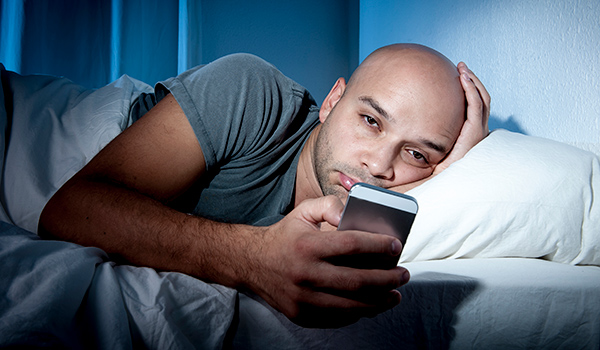
It’s no laughing matter: addiction to smart devices is a real problem we have to deal with in the 21st century. According to one consumer survey, Americans view their phones an average of 52 times per day; 59% of consumers use their phone “very or fairly often” during working hours; More than a third of adults report using their phone “very or fairly often” for business purposes outside their normal working hours. In addition to this, the blue light emitted by smartphones, tablets, laptop computers, and TV screens block the production of melatonin- a hormone that regulates your sleep-wake cycle. Not everyone has a health and wellness portal to track their bad habits. This addiction is affecting our health and dampening our productivity. This can mean millions of dollars lost in revenue. It is important to find ways to reduce screen time.
Practical Ways To Reduce Screen Time and Improve Your Health
Take screens out of the bedroom
The first place you will have to take screens out from is your bedroom. As mentioned above, the blue light has a negative effect on melatonin production. This will keep your brain more alert making it difficult to fall asleep. Therefore, it will be advisable for you to keep all screens out of your bedroom and reserve your bedroom for sleep.
Here are a few practical ways to reduce screen time.
- Take the television out of your bedroom. Don’t plan to play video games or watch TV shows on your TV in your bed.
- Leave your cell phone and tablets charging outside of your room. This could mean that each night, you plug your devices in your kitchen and then head to your room for bed.
- If you don’t have separate rooms in your home or you have roommates and so cannot leave your phone plugged in outside of your bedroom, turn your phone off before bed. If you’d like to be a little extreme about it, you can take out the battery from your phone before bed and put it back in when you wake up in the morning.
Use tools to keep you focused
If we’re checking our phones 52 times per day, it’s no wonder our focus and attention span is so affected. In one study, researchers found that human beings now have an average attention span of 8 seconds. This is lower than the attention span of a goldfish. Our focus has really been affected by our advancements in technology. Thankfully, it is possible to reclaim that focus.
There’s also research supporting the fact that you, on any given day, we all have limited self-will or self-power. This means as the day goes on, your ability to focus and get work done can diminish drastically. Add several interruptions and cell phone notifications into the mix per day and your productivity can take a severe hit.
At work, you can keep your phone in silent mode and out of sight so it does not interrupt your work. Additionally, you can use tools to keep yourself focused on your work.
The Pomodoro method has worked for millions of people around the world. Using this method of working intensely for periods of time and then taking a break proves to be much better than trying to exist on self-will alone. A tool that could help you with the Pomodoro method is E.ggtimer.
Practice quiet time
Chances are that you have no quiet time during your day. Correct?
Quitting your smart devices (or at least reducing time on them) is a great excuse for getting some quiet time in. Instead of looking at your phone incessantly on your break, how about taking that time to not only enjoy your lunch but it in a space that is quiet and allows you to reflect on work.
Reflection, journaling and practicing quiet time are all powerful tools in coming up with new ideas and helping your brain to stay healthy.
Intentionally plan activities that involve no phones
In 2019, this sounds like a ridiculous proposition. And while time-travel back to 1995 when we had no phones is currently impossible, it is possible to have a phone-free event where people actually talk and connect with each other.
Asking everyone to leave their phones in a basket at the entrance could be one way to encourage phone-free events. Of course, you’ll have to do this within reason so people’s phones are not stolen.
Read physical books instead of eBooks
Our smart devices are such wonderful educational tools but as we mentioned, they can affect your health negatively. So instead of reading an eBook, how about getting the physical version of that book and reading it instead?
Our advancements in technology have gotten us here. But it’s reversible. It is possible to enjoy the benefits of smart devices and find ways to reduce screen time while protecting our health at the same time. It takes being intentional and practical to get there.
If you enjoyed this post, consider sharing it.

